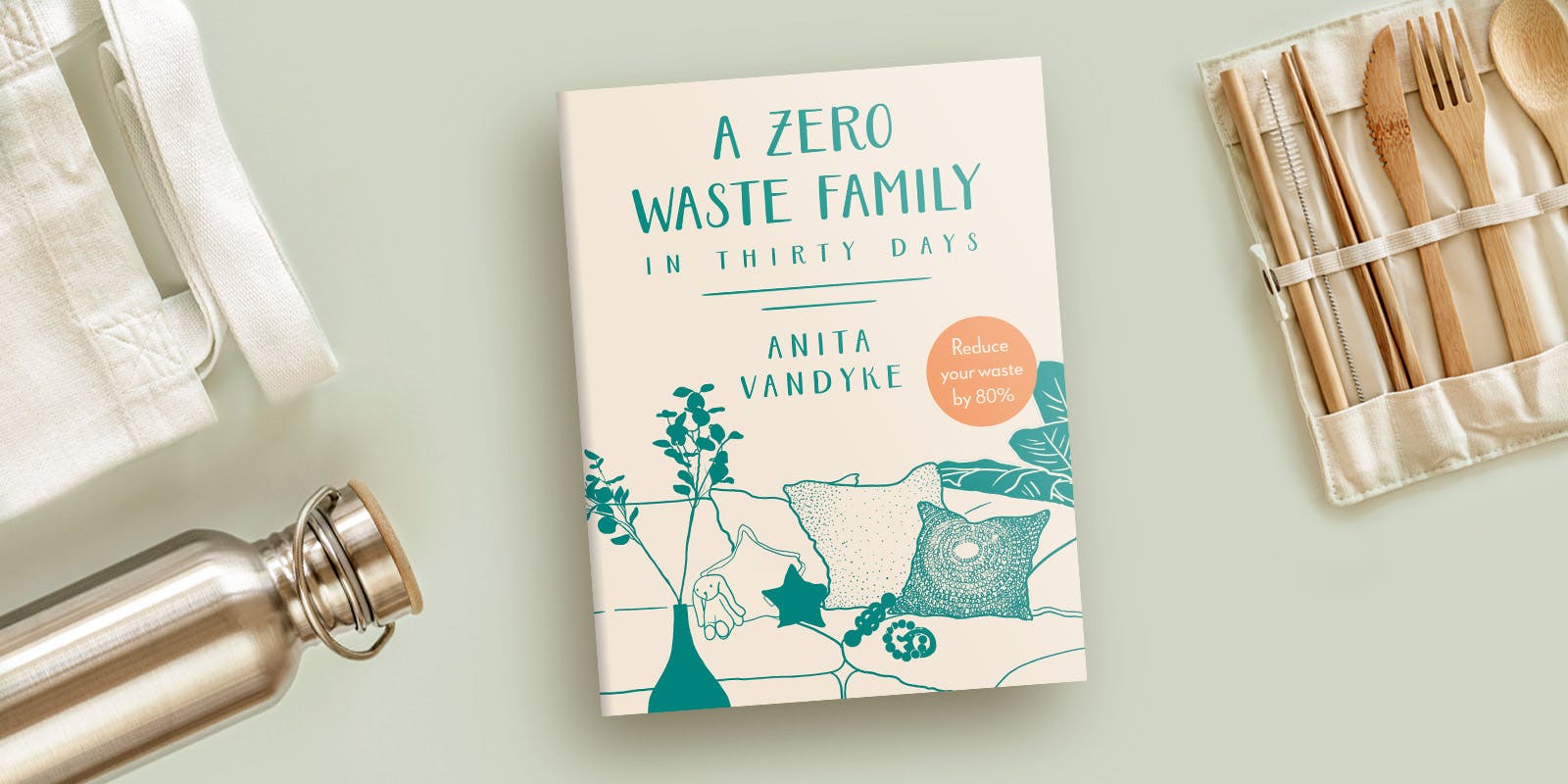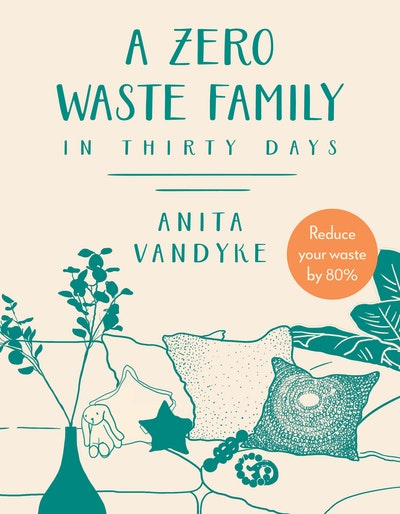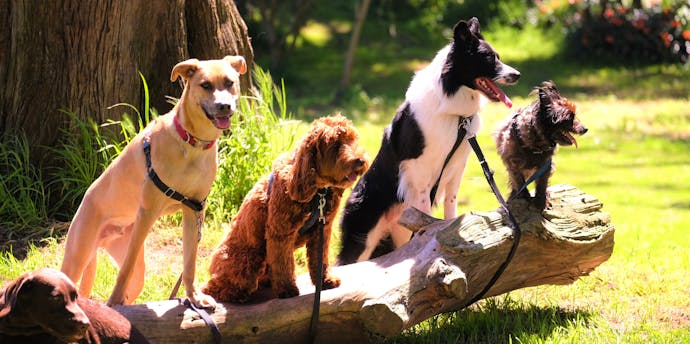Bestselling author, rocket scientist, medical doctor and mother Anita Vandyke offers her top five tips for becoming a zero waste family.
1. Aim for effort, not perfection
The first day of the 30-day guide in A Zero Waste Family is acceptance that we should aim for effort, not perfection. To do this, we need to get off our high horses and be non-judgmental, to others and particularly to ourselves. Low waste living does not mean you get to sit on a high horse. It is an acceptance that we are all trying our best. Let’s begin by loosening the grip on the ‘perfect’ way to live a zero waste life and accept that making an effort in everything that we do all adds up to a big cumulative difference.
2. Create a trash command station
In my home I have divided my rubbish into dry rubbish, which is sorted into three pedal-press rubbish bins, and wet rubbish, which is sorted into compost and bokashi (fermenting) containers. All these bins and containers are clearly labelled to ensure everyone knows where everything is going.
Dry rubbish consists of:
- Recycling bin – check with your local council what can actually be recycled. They usually have a one-page information sheet that you can tape onto the lid of your bin.
- Soft plastics bin – soft plastic (i.e. any soft plastic that is scrunchable) can be recycled! Recycling bins are located outside most major supermarkets. Keep a bin separate for this, so that you can take your soft plastics to be recycled on a regular basis.
- Landfill – this bin is clearly labelled ‘landfill’ as a reminder to all household members that whatever rubbish they put in this bin ends up somewhere as landfill. Remember when we throw something ‘away’, there is no such thing as ‘away’, it ends up in landfill, contributing to methane gas which is a significant source of greenhouse gas.
Wet rubbish consists of:
- Food scraps bin – this includes all fruit and vegetable scraps. I have a kitchen benchtop container that I put all my scraps into. You can dispose of this into your compost bin whenever it’s full or if you don’t have a compost bin at home you can put in the fridge or freezer and take it to a community compost bin once a week or dispose of it in a friend’s compost bin.
3. Say no to food waste
Food waste is a huge environmental problem. Whenever we send our food to landfill the breakdown of the food waste causes the release of methane (a greenhouse gas) into our atmosphere. Food is a precious resource, wars have been fought over famine, we should not be wasting it. There are some simple rules for your kitchen which can help reduce your food waste:
- do a pantry/fridge audit before you go shopping
- make a list of the items you need
- meal plan or meal prep your food
These simple rules mean that you reduce what you throw away, introduce more healthy foods into your diet and also save money in the long run.
4. Try going plastic-free
Plastic is made of petroleum and plastic is not actually recycled, but downcycled. This means it gets downcycled to poorer and poorer forms of plastic until it cannot be downcycled any further and sits in landfill, releasing methane into the atmosphere. Plastic is also incredibly toxic to our sea life, in fact, it is estimated by the year 2050 there will be more plastic in the seas than fish. This alarming statistic is a wake-up call to reduce our plastic consumption. This can be done in our everyday lives with a few simple switches:
- refuse single-use plastic bags and bring your own, if you forget, try asking for a box instead (which you can responsibly recycle)
- try shopping at the farmer’s market and buying produce without packaging
- refuse straws, use your mouth instead! (or a stainless steel straw if needed)
- say no to disposable coffee cups and replace it with a reusable coffee cup
There are countless more plastic-free solutions, for more ideas check out my Instagram (@rocket_science).
5. Head outdoors
Finally, one simple yet highly effective way to be an everyday activist is to head outdoors every day. When you are connected with nature, even if it is a simple walk in your local park, this allows you to see the beauty and grandness of nature. You come to appreciate that nature is worth fighting for. She is a voiceless victim, and it is time we gave a voice to her. We need to be Everyday Activists so that we are reminded that Earth is the only home we’ve got – there is no Planet B.














